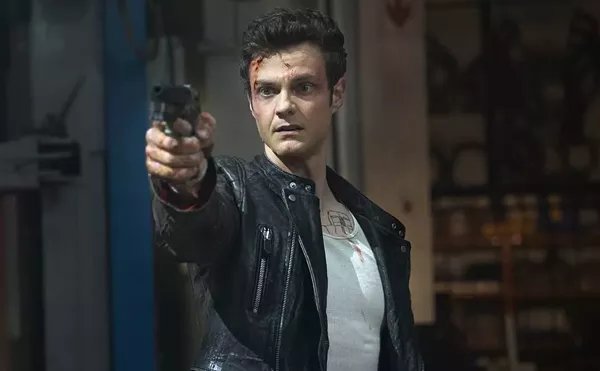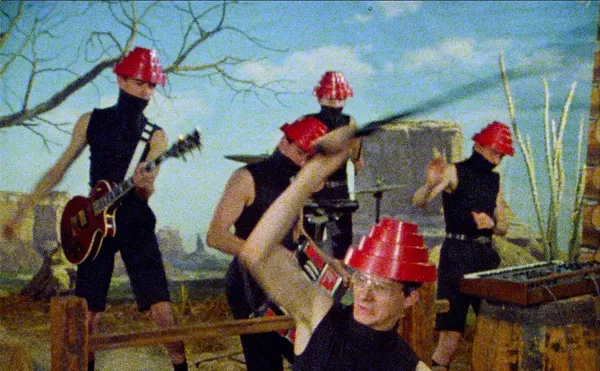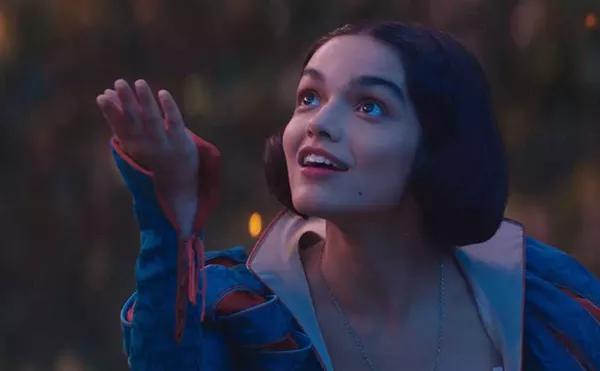It's one of those deep-of-winter snowstorms. There may be a chill in the air, but Longview Sound studio in Rochester Hills — where three-quarters of the team behind the Internet show called Detroit Jazz Stage are working — proves to be an extremely warm and welcoming environment.
The studio is owned and operated by Mark Byerly, an affable and laid-back guy who speaks in thoughtful and wellpaced phrases, not unlike his trumpet playing. Dean Sahutske, a friendly and personable gent, handles the lion's share of technical responsibilities for designing and maintaining the Web site and Podcasts. And Rodney Reeves is one of the cohosts of the program. A pianist and educator, his subtle humor is infectious — and his knowledge and deep respect for Detroit and all things jazz quickly becomes apparent. "Dean had the idea to do a show on public access cable about Detroit jazz and he approached me about it," explains Reeves. "At the time, I was between jobs and looking for something fun to do. This was around 2005, and I had a friend in the software industry who told me about Podcasting."
After some research on the topic, Reeves convinced Sahutske that it would be more cost-effective and forward- thinking to pursue a Web site that would feature Podcasting, potentially reaching a wider audience.
Sahutske, who has been a trumpeter for 30 years and in the IT field for 20, wanted to combine his two skills and musical passions into a unified whole.
"I started watching TV programs like Austin City Limits and Soundstage and wondered how I could take a show and create it to promote jazz — specifically Detroit jazz," Sahutske, the self-described "computer geek" explains.
While working in technical support at a local advertising agency, Sahutske took advantage of a mentoring program that focused on broadcast production. Throughout the summer of 2005, he diligently assembled a conceptual demo patterned after artist interview and music segments on National Public Radio.
"At that time, I had been playing with Mark and had a huge respect for him as a musician," Reeves explains. "But we had no idea that putting something like this together would be such a challenge. We approached Mark about it and he said he would help us. So we then tried to make the best show we could."
Byerly — whose résumé includes stints with such rock and pop acts as Bob Seger, the Verve Pipe, Justin Timberlake and jazz ensembles Bop Culture and the Motor City Horns — was juggling a full schedule of road work and session gigs. But he really liked the concept that Reeves and Sahutske were forging and decided he wanted to be involved.
"This was in October of 2005, and I was their guinea pig," Byerly says. "We did the interview here and, after it was done, I offered to do the editing and record the shows. Dean and Rodney did a nice job but I thought my experience as an engineer could just make it better."
At that point, the team's roles began to align, with Sahutske as executive producer, Reeves as host and publicist, and Byerly as sound engineer and co-producer. But there was one ingredient left in the mix that would offer a focus and add much-needed credibility to their musical mission. "A lot of my friends are musicians, and one of them e-mailed me about the Web site," recalls co-host Jim Gallert by phone. "Podcasting is basically a downloadable radio broadcast, and I liked what Dean and Rodney were doing. But they weren't radio guys and I felt their shows needed some structure."
Gallert knows his stuff. With a pedigree that includes decades as host of Jazz Yesterday and Detroit Jazz Alive on WDET, Swing City on WEMU and as co-author of the book Before Motown: A History of Jazz in Detroit 1920-1960, he brought a wealth of Detroit jazz history knowledge to the project that immediately elevated the quality of their collective endeavor.
"Together, we make a really effective team when we interview people and it's a lot of fun," says Gallert.
"With Mark's editing, it's like doing Detroit Jazz Alive … only without all my screw-ups!" he laughs.
Detroit Jazz Stage spotlights the best of what our metro area has to offer. In just over two years, they've produced and archived 50-plus local and regional jazz artist Podcasts that can be found at jazzstage.us. Some of the hometown luminaries that have been featured include saxophonist-poet Faruq Z. Bey, trumpeter Walt Szymanski, saxophonist Phil Lasley, poet M.L. Liebler, guitarist Ron English and saxophonist-educator Wendell Harrison, among others.
"I think the intent of our show is to tell a story that follows an historic timeline of the history of Detroit jazz from as close to A as we can get to as close to B as we can get," Reeves says. "We meet so many great musicians doing this show that I often feel like we're like the guys in Wayne's World — you know: 'We're not worthy, and we're not worthy!'"
Under the umbrella of jazzstageproductions.com, one can access their Detroit jazz artist Podcasts. The site also offers other webcasts, including the Jazz Spotlite Channel, weekly features on national and international artists, and Jazz Extras, which goes beyond locals to feature indepth profiles on such artists as vocalist Kurt Elling and pianistvocalist Mose Allison. It even includes an interactive local concert calendar, musician forums, videos and live broadcasts from the Music Hall for the Performing Arts and the Max M. Fisher Music Center.
The Detroit Jazz Stage Productions team is also a huge supporter and participant in the annual Detroit jazz fests, featuring Podcasts from the "Talk Tent," where Gallert and co-author and partner Lars Bjorn interview many of the legendary figures that appear there each year.
"No matter where I travel around the world, when you say you're from Detroit, especially in a jazz context, there's an immediate respect people have for you," says Byerly. "There's such a great jazz history in this town, from Pepper Adams to the Jones brothers … Barry Harris, Tommy Flanagan, Joe Henderson, Marcus Belgrave and just so many others. It was J.C. Heard and tons of cats from Detroit who ended up creating that 'New York sound,' anyway. So, we just wanted to make people aware of this history and legacy via our Podcasts."
Eric Harabadian is a freelance writer. Send comments to [email protected]





